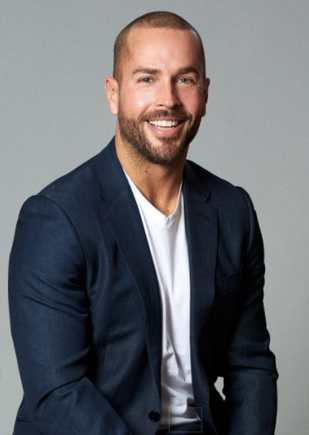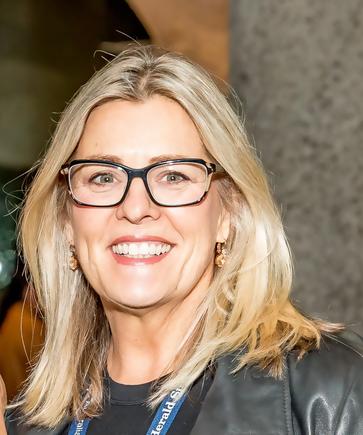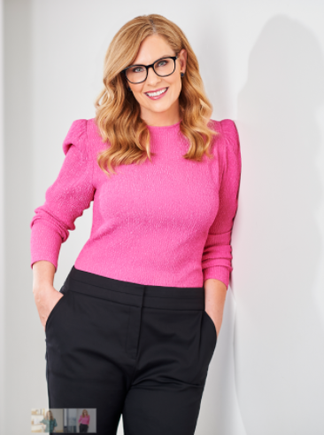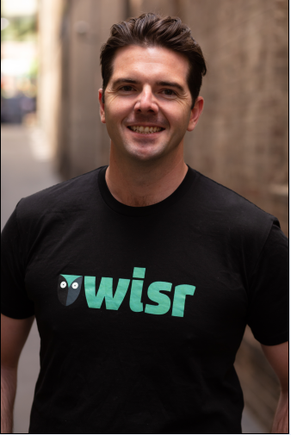Everything you need to know about mentoring in the Covid age
- 16 September, 2021 08:03

Wisr's friendly morning Zoom has brought insights for mentors
Discovering mentors was “life-changing” for Nick Bell, an AFR young rich-listed entrepreneur whose now more than 1000 employees in seven digital businesses are spread across 12 offices in eight countries.
“I think I could have fast-tracked my career if I had mentors early on – I didn’t get a mentor till I was 35,” Bell tells CMO, not completely unaware of the irony as to the speed of his career. “I thought I could do it all myself and didn’t need anyone’s help. It was the wrong mentality. Then I met a gentleman, through the YPO network, and developed a relationship that completely transformed who I am as an individual and a business owner.”
Bell believes mentoring enabled the $39 million sale of his digital marketing agency, WME.
“I'll be honest, when I sold my business five years ago and if it wasn't for my guys I lean on, I doubt that acquisition would have gone through,” he says.
In August, Bell launched Lisnic, a mentoring platform which matchmakes mentees and mentors. It’s his seventh company following his six digital agencies. Bell and other digital entrepreneurs mentor clients wanting a digital focus alongside Lisnic’s mentor list, which includes successful executives, FMCG leaders, sportspeople and celebrities.
Bell himself relies on a group of 10 mentors today, now all together in the same WhatsApp group. These individuals have expertise relevant to particular areas of his life such as property, software-as-a-service, FMCG and relationships. He contacts the group “almost daily”, gets a response within minutes and knows the people with the most relevant expertise will call.
On Mondays, Bell runs seven Zoom huddles with his general managers of each business, which used to be held standing up to encourage brevity. He also runs senior management huddles and runs another daily for the full team of First Page, his Singapore digital marketing agency that has just launched in Melbourne. He used to be almost constantly on the road to physically attend but that has all changed.
 Credit: Lisnic
Credit: Lisnic Mentoring transformed
In the past 20 years, mentoring has moved from something that was often hierarchical and for a chosen few. It usually came from very senior people handing down knowledge that was career-focused and often centred on training or a focus on a particular skills area. It’s gradually become more holistic, in line with society’s concept of health now encompassing mental health and wellbeing. Mentoring, too, now includes more general workplace challenges, personal goals and focuses on work-life balance.
Mentoring under Covid has added less formal elements and encompasses a wider range of topics as family or personal life spills onto the desk and work across the dining table. Many say it’s more needed than ever, not only because of the challenges of working from home.
“It’s more important today than ever because to be effective and have more impact, marketing people need to be good at influencing and working with many different people across their organisation,” says Mark Lollback, who has mentored for The Marketing Academy for many years. The former GroupM CEO is on gardening leave and setting up a marketing consultancy.
“One great way to do this is to be mentored by a more experienced person who can guide them in this leadership skill.”
Bell believes senior marketers need more mentoring because marketing technology is evolving so fast, they need different perspectives and skills to keep up.
 Credit: Medibank Private
Credit: Medibank Private Medibank Private senior executive brand and marketing, Fiona Le Brocq, is another who sees old misconceptions about mentoring being dispelled. She acknowledges several people in her team who have mentored her informally.
“It doesn’t have to be formal. And mentors don’t have to be senior – that's a limited way to think about it,” she says.
“I have many conversations with people from my team who have played the role of a mentor where they have greater expertise than I do. This is particularly so where there have been some significant tech and digital advancements.
“Similarly, I request and receive feedback from my direct reports – we call it feed-forward. This has been incredibly helpful to recalibrate my thinking in a number of areas. We all have a lot to learn from each other, regardless of hierarchy and status.”
 Credit: Lollback
Credit: Lollback For Lollback, mentoring is all about leadership and management rather than about improving any task-oriented skills.
“Mentoring is not about telling how or solving something but where someone shares a challenge they have and a mentor can respond openly by sharing a relevant life experience and what they learned from it,” he says.
Covid coaching
Le Brocq has found a greater need for mentoring since Covid arrived.
“Relationships have deepened because we’re all acknowledging we’re experiencing similar things and reaching out more. Pre-Covid, I didn’t reach out to people as much nor did they reach out to me as often," she says.
Le Brocq herself found her unofficial mentors in a handful of women with whom she’s worked over the years. She taps into their experience and they tap into hers.
“Mentoring used to be about who I could talk to, to get ahead, help me improve my skills and for professional development. Its scope has been amplified as a result of the way we’re living with Covid because work and life are blending. There’s a dimension of empathy that’s been enhanced,” says Le Brocq.
For Wisr CMO, James Goodwin, changes in mentoring since Covid are more around content as connections and mentoring conversations take place from people’s homes.
“It’s broadened to include a mental health check because of different pressures, such as being alone or more people at home or dealing with kids. Mentoring has become more flexible in the way we do it and also the things we talk about," he says. "Lockdown has meant we’ve got to broaden dialogue and be more sensitive to more things affecting people.”
At Bell’s seven companies, wellbeing is supported separately from mentoring by encouraging exercises throughout the day. Health professionals also come in to run training workshops and online mental health support.
Le Brocq thinks much of the need for mentoring we now see in Covid was already there, just invisibly.
“Conversations in corridors are gone but we still need that connection. In fact, it’s critical now,” she says. “We need to be intentional about connecting with each other, including our teams who are looking to progress their careers. It has been critical to enable more one-on-ones, not just with direct reports, but more broadly across the teams. The lines here between mentoring and coaching have become a little blurred.”
Le Brocq has set up a regular ‘open door’ schedule where anyone in the team can book time to talk about their career, a personal situation and how they’re managing the changing Covid landscape. Or it could be a strategic issue they’re grappling with, or support for their return from parental leave. The mentee leads the conversation and Le Brocq works out how to best support them, often including others with whom they can follow up as mentors or as an extension of their support system.
Le Brocq is among many managers running relaxed sessions for sharing both work and personal things in a fun way. Medibank Private’s weekly ‘all hands’ sessions include celebrating special moments from babies to pets as well as progress with staff members’ people development plans.
Fun, sharing and connection sessions are seen as building blocks for good mentoring in many firms. Google senior marketing director, A/NZ, Aisling Finch, says it’s important to ‘mix it up’ and make video calls fun and interactive. For example, her team competed in Timberlina’s ‘virtual drag bingo’ one Friday afternoon.
At Wisr, people are encouraged to be curious, participate, share and learn. One forum for this is daily connection sessions on Zoom that regularly attract about 120 of the finance firm’s 170 staff. Anyone can put their name on the roster to host the morning call for up to 15 minutes and can include business news - or not. Goodwin's highlights so far include being serenaded by the hosts, a scavenger hunt and learning how the ratio of icecream intake in lockdown is relative to happiness levels, followed by surprise deliveries of icecream.
“As a mentor, you see some amazing stuff come out in the morning Zoom which you might not get in a one-to-one setting,” says Goodwin. “It’s been an interesting time learning different things about people and their interests.
Goodwin also runs weekly one-on-one catchups with his five direct reports, many are about work but roughly every fourth meeting is broader and about more general goals. Goodwin also does this with his CEO.
“Mentoring, for most people, is about values. But we take those values as given if you’re working for Wisr so we focus more on behaviours and the ways you meet those values and get things done,” he says.
Whether formal or informal, ‘being intentional’ is important because mentoring connections are no longer being made organically. We’re not attending events or networking meetings or even casual socialising where we would normally meet people with whom we might at some stage set up mentoring sessions.
Goodwin agrees the need for connection, mentoring and training has increased since Covid.
 Credit: The Coach Place
Credit: The Coach Place “Yes there’s a heightened sense of needs and the ability to reach out to get more mentoring, which is welcome: people just have to ask,” Goodwin says. “If people want more connection, we can work on that, or they might want to learn more. And they can because we have offered Udemy courses for the whole company.”
Lisa Stephenson is CEO of The Coach Place, which concentrates on coaching people to success. This includes mentoring and training mentors for programs it designs for corporates. It also helps individual customers of coaching sessions to analyse their networks to find ideal mentors.
“Finding mentors is a real stumbling block for our coached clients at the moment. People are saying ‘Oh my god, I’m stuck in my house, how do I find the people who are going to inspire me?’. So we draw a map of their network and ask questions to help them find the possibilities,” Stephenson explains.
Up next: When and how to build a mentor network and the dichotomy between mentoring and training
Page Break
When and how
Mentoring may be needed now more than ever, but how do individuals tell if they need it and what are the qualities of good mentoring? Stephenson believes you know you need a mentor if you feel like you're stuck in the ‘waiting place’.
"If you know you've got potential that's not being leveraged, if you're feeling like you need inspiration or fuelling or someone to tell you the truth, or if you feel as if you don’t know what to do, you need a mentor,” she says.
The consensus is mentoring ideally happens once a month or as Lollback suggests, sessions could be bi-monthly with adhoc needs dealt with inbetween on phone calls. But he warns calls only work if you’re already in a mentoring relationship and engaged with each other.
Many sessions are unstructured catch-ups about progress and obstacles in a job, in career goals and life generally. But both Bell and Lollback prefer structure based on a mentee’s need for help in a particular areas on a brief agenda. Finch too appreciates questions raised by mentees at The Marketing Academy where she also mentors.
“They all come well prepared with great questions. That’s continued during the pandemic and I still get a lot out of the virtual chats,” Finch says.
Read more: The growing importance of Reverse-mentoring
Bell says sessions need structure, rather than simply asking how is everything going and being told it's 'amazing'.
“I say let’s talk about the bad stuff so we can work through it. Before each session the mentee needs to work out three challenges they’re facing," he says. "We work through each challenge in 15 to 20 minutes and by the end of the session, the mentee has some actionable items to work through. Hopefully, by the next session, they’ve resolved those challenges and we can work through some new ones.”
For many team leaders, mentoring is a combination of learning about facets of work as well as personal goals beyond work. However, as a coach to mentors, Stephenson reports some mentors are now having conversations about things they don’t feel qualified to be talking about, including mental health.
Bell sees training is one side of the mentoring coin. Bell’s companies provide a lot of upskilling opportunities and buddying with colleagues expert in a skillset for up to six months, wherever they are in the world.
“Training can be very transactional - here's information about how, now go do it. Whereas mentoring is an ongoing relationship where you train and teach,” he says. “So it depends if it's training, where it's transactional and it's once off, or mentoring. Yes, mentoring is training, but it's an ongoing relationship that can last for years, goes deeper and shares a lot of personal information.”
Yet for Lollback, mentoring is not the same thing as training staff,
“It’s holistic because people struggle with different demands on their time, the balance between work and personal is all on the table but it is not personal counselling,” he says. “It’s not training – they can get that from their line manager.”
While in-person meetings are the best way to encourage the frank relationship needed between mentor and mentee, lockdowns have scuttled many meetings and our newfound video comfort zone has the upside of dispensing with travel. The Lisnic platform allows individuals to choose mentors from around the world.
“Mentoring is not just a meeting – it's an honest exchange. There’s nothing better than face-to-face because you get a much more authentic experience," Lollback says. "[Once a relationship has begun in person] I think phone calls are better than video because of video’s distractions in the background. Phone is less intimidating and it’s easier to concentrate without distractions.”
Honesty is the best quality
The qualities of good mentoring are commitment, an ability to listen and share and honesty. Often, distance can bring fresher perspective or valuable impartiality. Mentoring also needs to be done by people who genuinely want to do it. Often, it’s people who want to share their experience to give back to others and who gain satisfaction from sharing their experience in a way that will help the mentee.
“There’s a real value exchange for both parties. I always come out of a mentoring meeting feeling I got just as much out of that as the person being mentored,” says Lollback.
In the past, mentors would be senior people who possibly thought it's their job to share what they know and tell you the best way to do things, he admits.
“In fact it should be the opposite: The mentor’s job is to listen and ask questions and get to the mentee’s issues and share relevant experiences,” Lollback continues. “The mentor must be fully present and listen intently. A lot of the time, what the mentee is saying is not the real issue. So mentors must keep asking questions to peel back the onion, get to the real issue and have a really powerful conversation.”
Le Brocq believes the more holistic and less formal elements of mentoring enable people to open up more honestly and talk more authentically.
 Credit: Wisr
Credit: Wisr Lollback and Goodwin add ‘vulnerability’ to the list of good qualities in a mentoring session.
“Both mentor and mentee need to be prepared to drop their guard and be honest. They’re not there to impress anyone,” says Lollback. “A mentor is a trusted advisor and is not there to represent the business the company. They can't have an agenda, just give advice truly in the best interest of the person.”
Goodwin believes Wisr’s corporate culture encourages learning from “intelligent mistakes” and honesty.
“We create a safe space for people to make intelligent failures. As a high-growth company we want to empower people to make decisions and we don’t want them to feel bad about that. We’d rather ask what we can learn from that. I like to create psychological safety – vulnerability is a part of mentoring because people have to feel they can be very honest. It’s more of a mindset I can mentor people towards.”
Lollback and Stephenson suggest a little distance between mentor and mentee can go a long way to a more honest exchange. Lollback believes c-suite leaders make better mentors than the manager to whom you report.
“CFOs or leaders of HR or logisics are better placed to mentor people in marketing teams – because they need to be a trusted advisor and not the mentee’s their boss. Both parties need to be vulnerable and tell the truth, and the mentee has to believe that what they’re talking about doesn’t get back to their boss,” he says. “A CMO can still coach their team and give advice when asked, but mentoring should not come from your manager.”
Being mentored by someone outside your organisation brings even more distance. Stephenson believes it tends to be more effective as it feels more confidential. An outsider is also more likely to bring an even fresher perspective than a mentor from inside an organisation who’s imbued with the same culture or modus operandi.
Stephenson says provocative is another quality people now want in their mentors, and she says courageous firms are using external mentors to get that quality.
“What people want now more than ever is a mentor who will disrupt their thinking, challenge them really hard and give them different things to think about, who can help them build their network outside of where they are right now,” she says.
Someone walking away from a mentoring session, should feel “very nurtured, inspired and energised … like someone’s got you covered," she adds.
You can also follow CMO on Twitter: @CMOAustralia, take part in the CMO conversation on LinkedIn: CMO ANZ, follow our regular updates via CMO Australia's Linkedin company page

